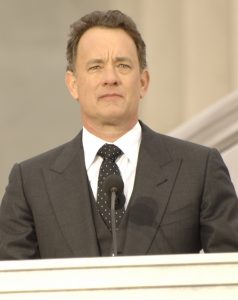
From “Flags of Our Fathers” to the polarizing “American Sniper,” Clint Eastwood has cemented himself as a capable director, fascinated with the subject of legacy and American heroism. “Sully,” Eastwood’s latest film, continues to explore those themes, albeit in a less nuanced and wholly satisfying fashion.
Flash back to Jan. 15, 2009. A still-youthful Barack Obama was about to be inagurated, and the housing bubble had just popped; the country was in bad shape. Then US Airways Flight 1549 happened. What should have been the most infamous event of the year turned into the “Miracle on the Hudson,” and pilot Chesley “Sully” Sullenberger turned into the hero America wanted. “Sully” is the story of that flight, and the emotional challenges Sully (Tom Hanks) faced during the immediate aftermath.
If the film itself is about valor in experience and quiet, everyday professionalism, then, when the movie is at its best, the same can be said for the filmmaking. At a spry 86, Eastwood is still able to suffuse the visually impressive disaster sequences with a visceral tension that captivates and reverberates within our collective memories (the Sept. 11 weekend release was no coincidence). And even though we know all the passengers survived the unprecedented accident, there’s still a sense that, perhaps this time, not everyone will be so lucky.
The largely unheralded Aaron Eckhart solidly provides some much needed comedic relief as First Officer Jeff Skiles — the film’s only fully realized, non-eponymous character — and Tom Hanks does as Tom Hanks is often wont to do: play likable characters unpretentiously and with aplomb. With nearly four decades of acting experience, Tom Hanks is perhaps the definition of the consummate professional within the mainstream acting world, and his performance here is further proof of that fact; I would not be surprised if he, once again, was a serious favorite for Oscar considerations.
I would, however, be surprised if the film was a serious favorite for Best Picture considerations, considering the filmmaking cannot seem to consistently echo “Sully’s” themes. The script is the film’s major detractor, as an Eastwood picture is once again saddled with a ridiculous and unnecessary framing device (I’m looking at you, “Letters from Iwo Jima”). Nearly every scene that doesn’t take place on the day of the crash feels hokey, and the dialogue too often feels downright amateur. Laura Linney is reduced to the generic biopic wife archetype, nagging Sully about financial troubles, and we never get to see her act opposite Hanks. All we are left with is a handful of mawkish phone conversations. With a sparse, 96-minute runtime, it almost feels like there wasn’t enough story to tell, so author Todd Komarnicki was forced to formulate a flashback-fueled narrative structure that simply did not work.
Upon finishing “Sully,” I couldn’t help but think that I had seen 2016’s “The Goodbye Girl.” Sure, “Sully” will get its Oscar nominations, and it might even win some, but 40 years down the line it will be little more than a film that, once every five years, parents tell their kids to watch. However, I can wholeheartedly recommend this film for fans of the “Tom Hanks becomes embroiled in an aeronautical disaster” genre. Just know that it’s only the third best film of that ilk.
